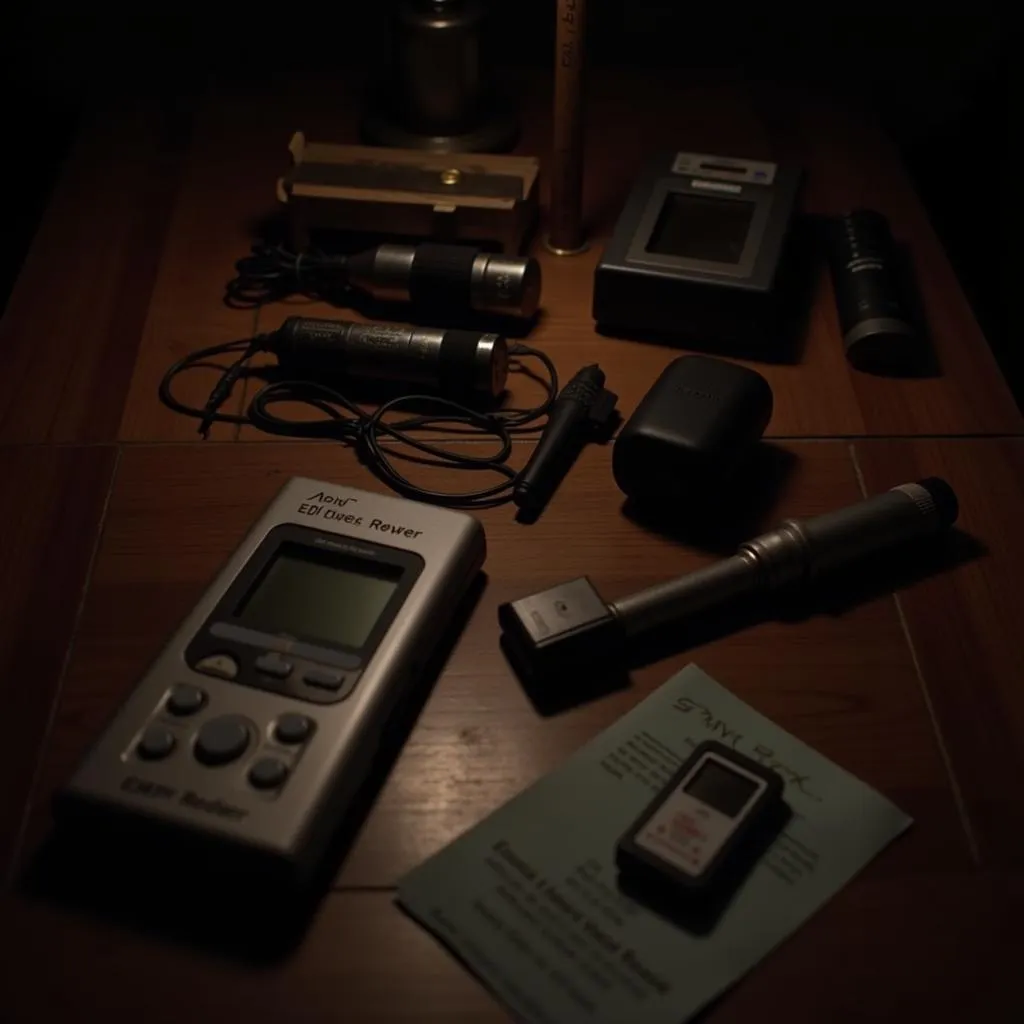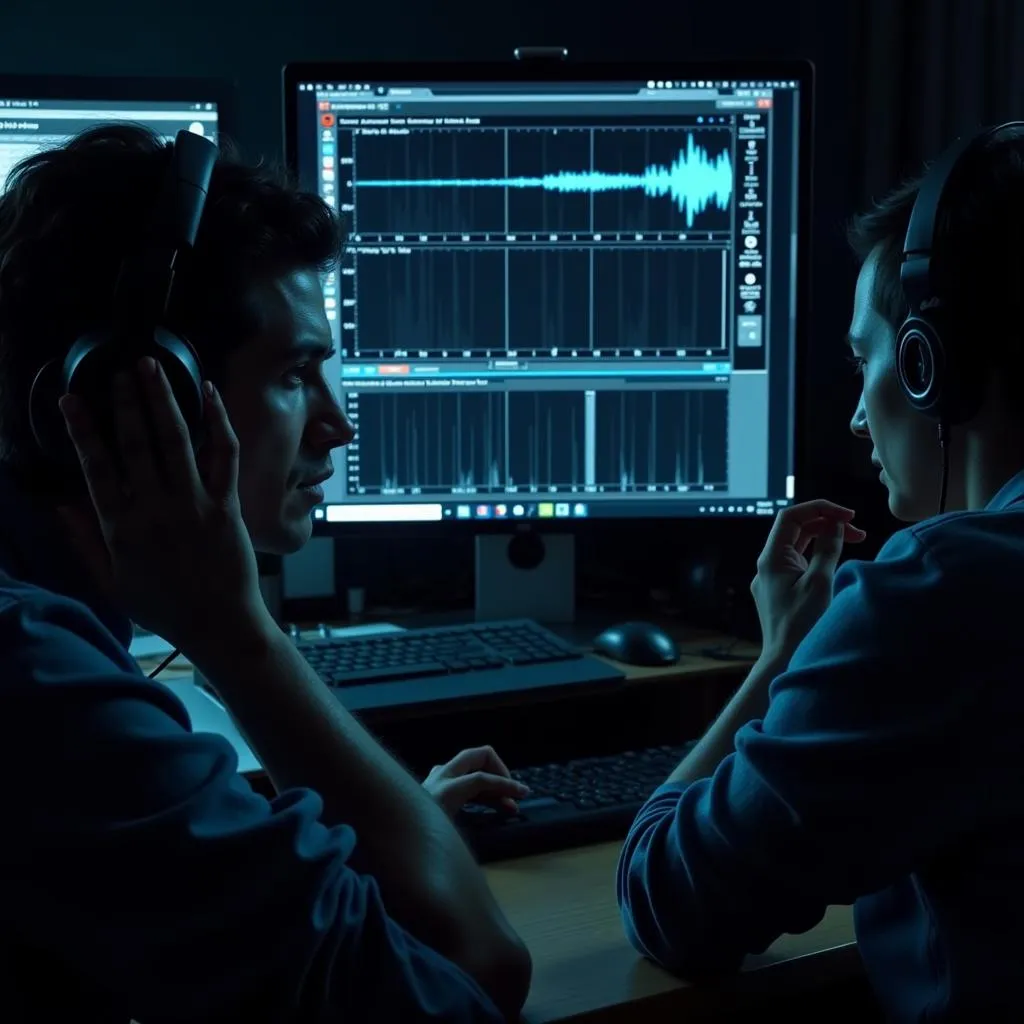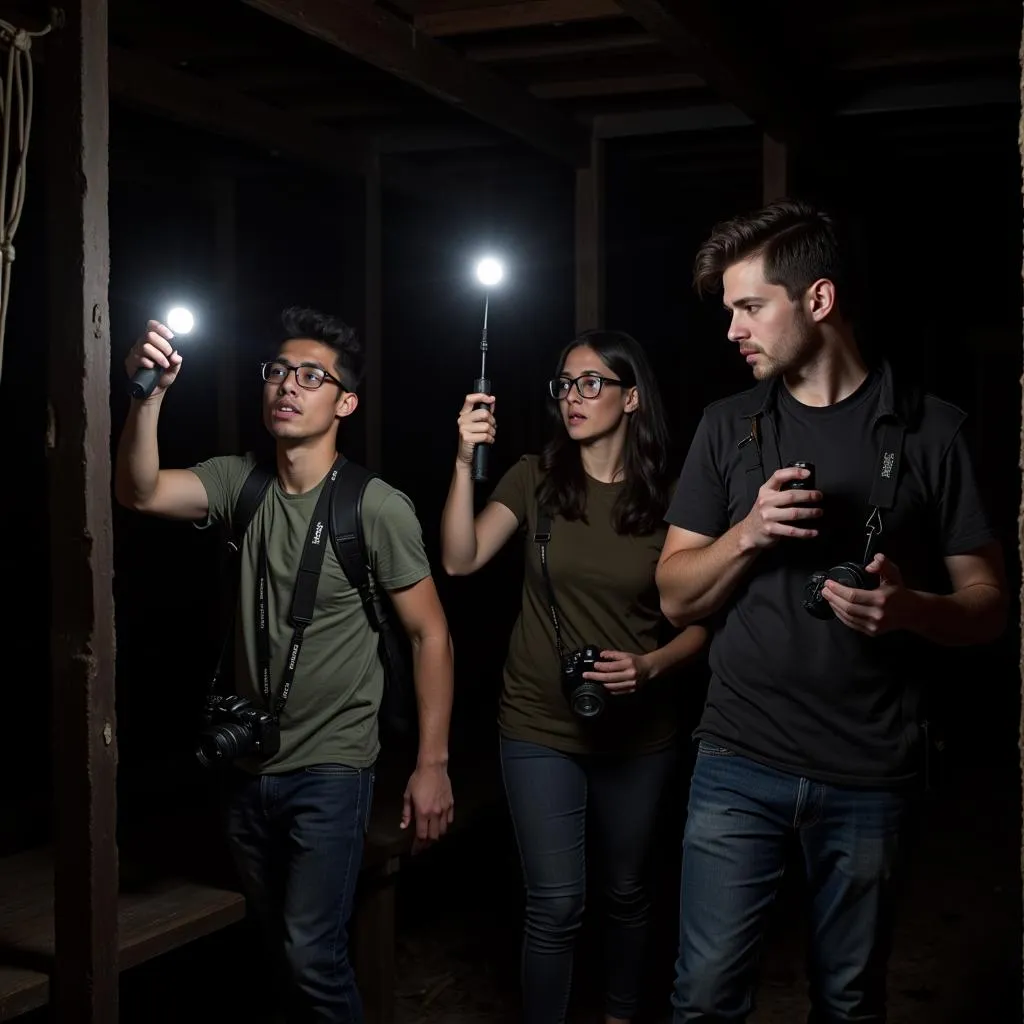The pursuit of the unknown has always captivated humanity, driving us to explore the uncharted territories of our world and beyond. My Research delves into the heart of these enigmas, exploring the realm of paranormal phenomena with a meticulous and analytical eye.
 Paranormal Investigation Equipment
Paranormal Investigation Equipment
Delving into the Unknown: Methodologies and Approaches
My research is grounded in a multidisciplinary approach, drawing upon fields such as psychology, sociology, and anthropology to understand the human relationship with the paranormal. While traditional scientific methods often struggle to grapple with the subjective and elusive nature of these experiences, I employ a combination of qualitative and quantitative techniques to gain deeper insights.
One crucial aspect of my research involves interviewing individuals who have reported paranormal encounters. These firsthand accounts, while subjective, offer valuable glimpses into the phenomenology of these experiences. By meticulously documenting and analyzing these narratives, I seek to identify patterns, common themes, and potential psychological or cultural factors that might contribute to these reports.
Empirical Evidence vs. Subjective Experiences: Navigating the Paranormal Landscape
A common criticism leveled at paranormal research is the lack of empirical evidence. While it’s true that many phenomena remain elusive and difficult to replicate in controlled settings, it’s essential to recognize the limitations of traditional scientific paradigms when applied to such subjective experiences.
My research acknowledges the importance of empirical data while remaining open to exploring alternative explanations and methodologies. For instance, while some may dismiss Electronic Voice Phenomena (EVP) as mere audio pareidolia, I delve deeper, analyzing recordings for consistent patterns and anomalies that might point to a genuine phenomenon.
 Researcher Examining Audio Data
Researcher Examining Audio Data
Empirical psychological research : Bridging the Gap Between Science and the Supernatural
One area where my research intersects with established scientific disciplines is in the field of psychology. By examining the psychological and sociological factors that influence belief in the paranormal, we can better understand how these beliefs shape our perceptions and experiences.
For instance, research has shown that individuals with a high need for closure, or a preference for order and predictability, may be less likely to believe in paranormal phenomena. Conversely, those who are more open to experience and comfortable with ambiguity might be more receptive to such possibilities.
Carmax 2350 research ct woodbridge va 22192: Unveiling the Historical Context of Haunted Locations
Another fascinating aspect of my research involves investigating the historical context of allegedly haunted locations. By delving into archives, historical records, and local folklore, I aim to uncover potential links between past events and present-day paranormal reports.
Often, these investigations reveal tragic events, unresolved conflicts, or significant emotional imprints that might linger in a particular place. While this doesn’t necessarily prove the existence of ghosts, it sheds light on the rich tapestry of human experience and the enduring power of place and memory.
The Importance of Ethical Considerations in Paranormal Research
It’s crucial to emphasize the importance of ethical considerations in my research. As we delve into the unknown, we must do so with respect, sensitivity, and a commitment to minimizing harm. This includes obtaining informed consent from individuals sharing their experiences, protecting their anonymity, and approaching each investigation with an open mind and a healthy dose of skepticism.
My research is an ongoing journey, a constant exploration of the boundaries of human knowledge and experience. While definitive answers may remain elusive, the pursuit itself is invaluable, pushing us to question our assumptions, confront our fears, and embrace the mysteries that lie at the heart of our existence.
Frequently Asked Questions
1. What is the most compelling evidence of the paranormal you’ve encountered in your research?
As a researcher, I strive to approach each investigation with objectivity and avoid drawing premature conclusions. While I’ve encountered numerous compelling accounts and intriguing phenomena, I believe the most convincing evidence often lies in the convergence of multiple lines of inquiry, rather than a single “smoking gun.”
2. How do you address skepticism in your research?
Skepticism is a healthy and essential part of any scientific endeavor, including Paranormal Research. I welcome skepticism and encourage critical thinking. In my work, I strive to address skepticism by employing rigorous methodologies, documenting my findings transparently, and remaining open to alternative explanations.
 Paranormal Investigators on Location
Paranormal Investigators on Location
3. What advice would you give to someone who believes they’ve experienced something paranormal?
First and foremost, I would encourage them to document their experience in as much detail as possible, noting the date, time, location, and any sensory details they recall. It’s also important to consider potential environmental or psychological factors that might have contributed to the experience. Finally, connecting with others who have had similar experiences can provide valuable support and insights.
Seeking Answers Together: Your Paranormal Experiences Matter
Do you have a compelling story to share or questions about the paranormal? We’re here to listen and help you explore the unknown. Contact us at Phone Number: 0904826292, Email: research@gmail.com Or visit us at: No. 31, Alley 142/7, P. Phú Viên, Bồ Đề, Long Biên, Hà Nội, Việt Nam. Our dedicated team is available 24/7 to assist you.